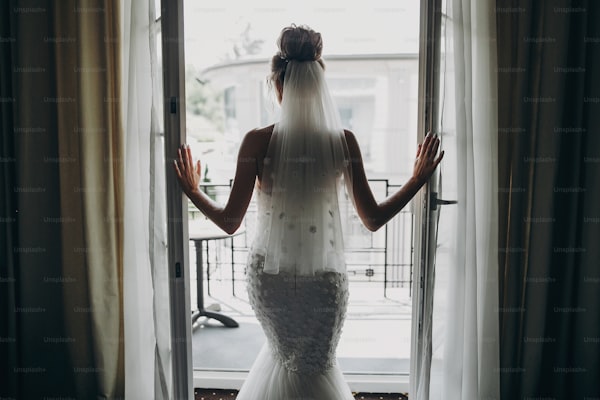How to Choose a Comfortable Wedding Dress for All-Day Wear
The Ultimate Guide to Choosing a Comfortable Wedding Dress
Your wedding day is one of the most significant and memorable days of your life. As you plan for this special occasion, one of the most important decisions you'll make is selecting the perfect wedding dress. However, comfort should be your top priority, especially if you want to enjoy every moment of your celebration. So, how do you choose a wedding dress that’s comfortable for all-day wear? Let’s explore the options!
Understanding the Importance of Comfort
The wedding day often lasts from morning until late at night, encompassing various events such as the ceremony, reception, and even dancing. A dress that looks stunning but feels uncomfortable can turn your joyful day into a challenging one. Here are some reasons why you should prioritize comfort when choosing your wedding dress:
- Confidence Boost: A comfortable dress allows you to move freely, boosting your confidence as you walk down the aisle and mingle with guests.
- Lasting Memories: Comfort ensures you can focus on celebrating with your loved ones instead of adjusting, tugging, or feeling restricted by your gown.
- Practicality: You’ll be sitting, dancing, and participating in various activities throughout the day. A comfortable dress makes every moment enjoyable.
Factors to Consider When Choosing Your Dress
When selecting a wedding dress that is both beautiful and comfortable, keep these essential factors in mind:
1. Fabric Choice
The fabric of your wedding dress plays a crucial role in your overall comfort. Lightweight and breathable fabrics such as chiffon, silk, and cotton blends are ideal for all-day wear. These materials allow for better airflow and movement, making them perfect for long hours. On the contrary, heavy fabrics like satin or taffeta may look gorgeous but could restrict your motion.
2. Fit and Style
Choosing the right fit is key to ensuring comfort. Dresses that are too tight may restrict movement, while overly loose dresses can result in constant adjustments. Here are some styles that typically offer more comfort:
- A-line Dresses: These cinch at the waist and flow outwards, offering plenty of room for movement.
- Empire Waist Dresses: Featuring a raised waistline, these dresses are flattering and comfortable, allowing for an easy fit around the bodice.
- Maxi Dresses: For a laid-back vibe, maxi dresses made of lightweight fabric can provide style and comfort.
3. Length
The length of your wedding dress is also important. Opting for a dress that falls above the ankle or a high-low style can prevent tripping, making it easier to walk and dance. Consider a detachable skirt or train if you want the elegance of a longer dress while being practical during certain activities.
4. Supportive Undergarments
The right undergarments can significantly affect how comfortable your wedding dress feels. Invest in quality shapewear or supportive bras that will offer comfort throughout your day. Make sure you try on these undergarments with your dress during fittings for the best results.
Measuring for the Perfect Fit
When choosing a wedding dress, getting the right measurements is crucial. Here’s how to ensure you get an accurate size:
| Steps to Measure Yourself | Details |
| 1. Bust | Measure around the fullest part of your bust while wearing a good supportive bra. |
| 2. Waist | Find your natural waistline, usually the narrowest part of your torso. |
| 3. Hips | Measure around the fullest part of your hips. |
| 4. Height | Take your height into account, especially for floor-length dresses. |
Finding the Right Bridal Boutique
When searching for a wedding dress, be sure to visit several bridal boutiques. Each boutique will have different selections, styles, and price points. Here are some tips on how to make the most of your visits:
- Make Appointments: Schedule appointments for personalized attention from consultants who can help you find the perfect fit.
- Take Friends or Family: Bring along trusted friends or family members whose opinions you value. They can provide insights and help you feel more confident.
- Ask About Comfort: Don’t hesitate to ask consultants for dresses that are known for comfort. They will likely have recommendations for specific styles.
The Role of Accessories
Your choice of accessories can also enhance your comfort. Consider the following:
- Shoes: Opt for comfortable wedding shoes that you can wear for hours. Avoid heels if you're not used to them; consider stylish flats or wedges instead.
- Veil and Headpieces: Choose lightweight materials and styles that won't weigh you down.
- Jewelry: Keep it minimal. Heavy necklaces or earrings that tug on your skin can cause discomfort over time.

Trying On Dresses
When trying on dresses, pay attention to how you feel in them. Here are a few tips to keep in mind:
- Move Around: Walk, sit, and dance in the dress to gauge comfort level.
- Stay Hydrated: Drink water, as it can affect your body size. Validate that you can still feel comfortable after consuming fluids.
- Be Open to Adjustments: Minor alterations can improve comfort tremendously, so don't shy away from getting a tailor involved.
Final Thoughts and Suggestions
Choosing a wedding dress that is comfortable for all-day wear is a crucial aspect of planning your big day. By focusing on factors such as fabric, fit, length, and supportive undergarments, you can find the perfect gown that not only looks beautiful but also allows you to enjoy your celebration effortlessly. Remember, your comfort will translate into confidence, making your wedding day even more memorable.
As you embark on your Wedding Dress Shopping journey, keep an open mind, and don’t hesitate to explore different styles and sizes. Comfort doesn't mean sacrificing elegance; you can have both. Happy wedding planning!